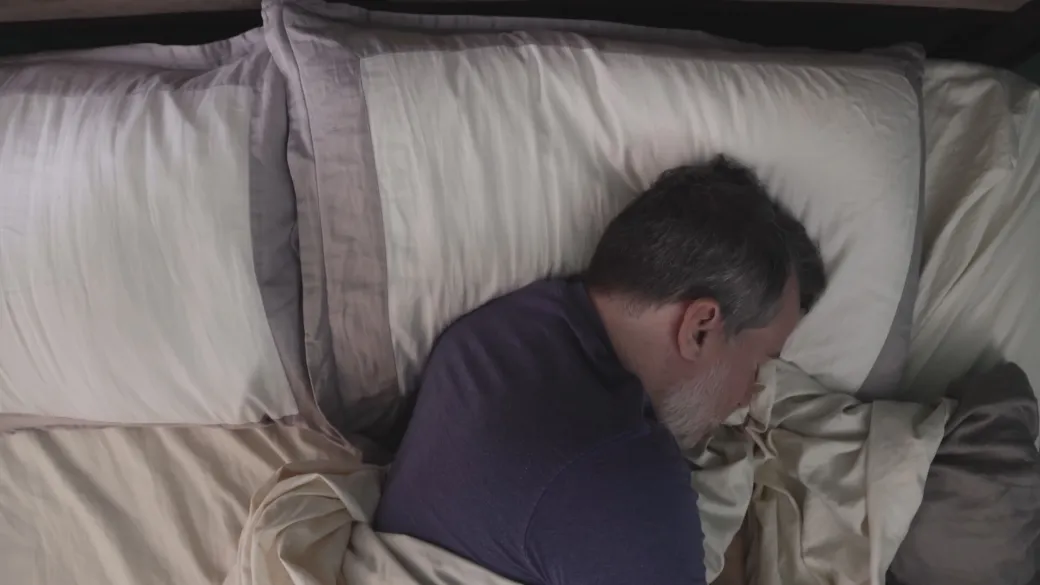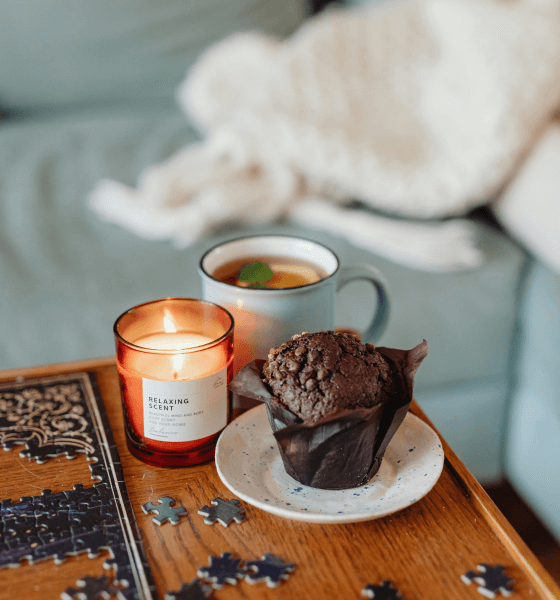

Imagine finally drifting off to bed, only to be jolted awake by a bedquake caused by your partner’s restless leg. Or maybe you’ve just pulled the covers snug around you when they’re yanked away again.

From loud snores to extreme body heat, these common nighttime nuisances have led some couples to try sleeping apart. Known as “sleep divorce,” it’s a trend that’s allowing couples to wake up refreshed and still in a relationship, even if it’s from different beds or rooms.
“Sleep divorce refers to when two people in an intimate relationship decide to have a sleeping arrangement where they’re not in the same bed. They may be in the same room, but technically, they’re just not in the same bed,” explained Dr. Saunia Ahmad, a clinical psychologist and director of the Toronto Psychology Clinic.
“The term divorce obviously has a negative connotation, but it really doesn’t have to be a negative decision.
“In fact, couples will decide to have a sleeping arrangement where they’re sleeping in separate rooms to improve their sleep and improve their relationship.”
Tweet This Click to share quote on Twitter: "In fact, couples will decide to have a sleeping arrangement where they're sleeping in separate rooms to improve their sleep and improve their relationship."
Ahmad said she prefers to use the term “co-regulating” your sleep, as it can be a positive way of coping with the fact that two people have different patterns when it comes to sleeping
So, if you and your partner have been sleeping in separate beds (or have talked about it) for the sake of better snooze, Ahmad says not to worry — it’s quite normal and can even improve the quality of your relationship.

This is exactly what Dana Infald, 41, and her husband decided to do a few years ago.
After countless nights of disrupted sleep because of his tossing, turning and snoring, they realized it was time for a change. So, they embraced the idea of sleeping apart to finally get the rest they both needed.
“It was like he was an acrobat in his sleep and over time it got worse. We both realized we weren’t getting sleep, because he would wake me up and then I would wake him up,” Infald told Global News.
Infald, who lives in Toronto, says a “sleep divorce” has been the perfect solution for her and her husband.
The only awkward part? Telling friends and family about their unconventional arrangement.
“If you were to tell a stranger, or post our scenario online on a mommy group or something, I am sure people would assume there is something wrong … but they don’t know the full story,” she said.
“But why torture yourself to make other people happy? You should make yourself happy and not care about what others think. You know you’re in a happy marriage.”
Tweet This Click to share quote on Twitter: "But why torture yourself to make other people happy? You should make yourself happy and not care about what others think. You know you're in a happy marriage."

Infald is far from alone when it comes to her unconventional sleeping arrangement.
A 2023 online survey of 2,005 adults in the United States, conducted by the American Academy of Sleep Medicine, found that more than one-third of respondents occasionally or regularly sleep in a separate room to better accommodate their partner.
Ahmad believes that not only are more couples beginning to normalize this practice, but in some cultures, it has long been the norm. For example, in places like India, it’s not uncommon for couples to sleep in separate beds, she said.
“I think is a cultural thing. It’s not uncommon. I think that nowadays what’s happening is that more and more people are open to talking about it. And people have more on their plate recognize that they need to take care of their sleep as well,” she said.
In 2020, 18 per cent of Canadian adults aged 18 to 64 years and 15 per cent of adults aged 65 years and older slept less than what is recommended (seven to nine hours), according to Statistics Canada.
Poor sleep is linked with a rise in health conditions, including mortality, compromised immune function, cardiovascular disease, diabetes, mental and cognitive disorders, and accidents and injuries, the Centre for Addictions and Mental Health reports.
And if you are in a relationship, it can exacerbate fights, explained Laura Devlin, a registered clinical psychologist and co-owner of Beachers Therapy Group in Toronto.
“If you don’t have the rest that you need, it affects your emotional regulation,” she told Global News. “You may find yourself getting more irritable, experiencing cognitive fogginess, having less clear thinking overall.
“If you’re disrupting one another’s sleep, then that is only going to add to the tension in the relationship.”
Tweet This Click to share quote on Twitter: "If you're disrupting one another's sleep, then that is only going to add to the tension in the relationship."

Trying to stay together in bed for the sake of your relationship may only backfire, she added, if you are not taking care of your own physical needs first.
A 2017 study published in Psychoneuroendocrinology found that people who slept less behaved more negatively and emotionally when their partners had also slept less.
This is because sleep problems can boost inflammation and jeopardize emotional regulation, which may be magnified in couples, the authors argue.
“If people are not sleeping well, their attention span is impacted, their mood is impacted. They don’t show up their best for their relationship or their work,” Ahmad said. “So it has a compounding effect.
“It’s not just the number of hours we need in terms of sleep, but the quality of sleep too.”
Tweet This Click to share quote on Twitter: "It's not just the number of hours we need in terms of sleep, but the quality of sleep too."
If you are hoping to get the ball rolling with separate beds with your partner for the sake of your sleep, Devlin stressed the importance of communication.
“Communication is the most important, basic foundation for a healthy relationship,” she said. “Whenever you’re thinking about intimate relationships in particular, you want to think about your partner’s attachment need. So attachment theory is a basis for how we understand ourselves as bonded relationships.”
For some, sleeping apart can enhance their sense of security in the relationship. However, for others — particularly those who struggle with insecurity — it may trigger feelings of rejection or abandonment.
If you’re going to bring up the topic and feel it might be sensitive, create space for an open discussion about how both partners are feeling, Devlin explained.
It’s also important to explore other ways to create connection and reassurance, she said, such as sharing a bedtime ritual, reading together or even opting for two separate beds within the same room.
“It’s not just solving the problem of sleep. It’s also about how you make sure everyone feels OK about it emotionally,” Devlin said.
For Infald, communication was key when she and her husband decided to sleep in separate rooms. Another important step was ensuring they still made time for intimacy and meaningful bonding.
“Before bed, we’ll stay on the same couch and we’ll play Mario Kart or watch something that we both like. Sometimes we’ll go out, or we’ll go to dinner,” she said.
“As long as you have that time before nighttime, then you really don’t feel like you’re missing out.
“You have the cuddles, you have that time to be together, and then you just don’t sleep beside each other, that’s all.”
Tweet This Click to share quote on Twitter: "You have the cuddles, you have that time to be together, and then you just don't sleep beside each other, that's all."
Of course, sleeping apart may not be for everyone, Ahmad said.
In some cases, sleeping apart can improve the quality of a relationship, she said. However, in others, it might signal deeper, unresolved issues that the couple has yet to address.

“And there is always a concern that with the new sleep arrangement, how it will impact intimacy. Because naturally, people do tend to have more intimacy if they’re sleeping in the same bed together,” she said.
If this is a concern, Ahmad suggested trying separate beds during the week and sleeping together on weekends, reserving that time for intimacy.
Infald, who is pregnant and expecting a baby girl in the spring, explained that because she and her husband have committed to nurturing the romantic side of their relationship, intimacy and connection have never been an issue for them.
“It does not affect intimacy. If I can get pregnant at 40 years old and have my first child, it definitely works,” she said.


